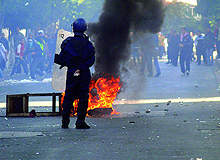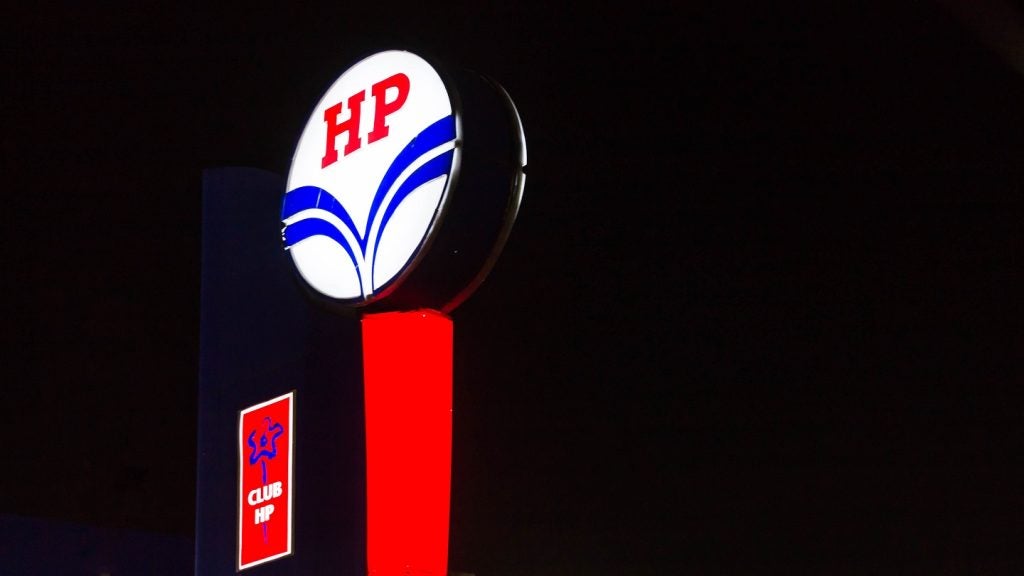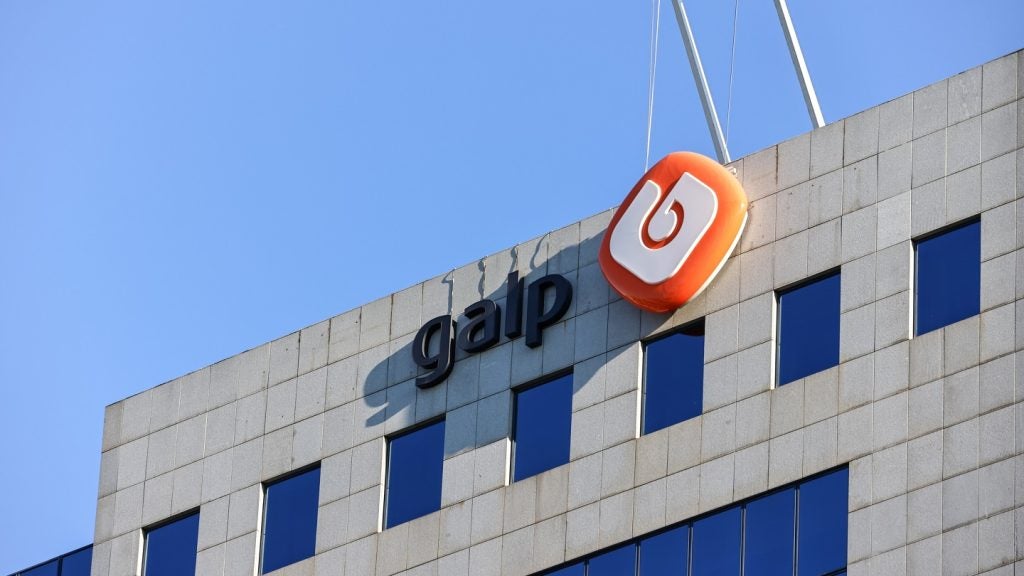
There may be trouble ahead for the oil industry, as anti-government protests in the Middle East and North Africa continue to halt production and send oil prices through the roof.
At the time of writing, the price for Brent crude stood at around $112, with analysts predicting that prices could double if Libya freezes output. This doesn’t bode well for the future, given that when oil prices peaked at $147 a barrel in 2008, the world suffered a global economic meltdown.
On 29 December 2010 riots began in Algeria before filtering through to Tunisia, Bahrain, Yemen and Egypt, where political leaders were either forced to step down or succumb to campaigners’ demands over certain legislations.
Now the violent protests are rife in Libya, however, it doesn’t seem like there is any room for negotiation as the country’s leader Moammar Gadaffi said he would rather die a martyr than resign. As a result, major oil producers including BP, Eni, Respol and Wintershell have shut down their activities.
This news is made worse by the fact that Libya has the eighth-largest oil reserves in the world – with 43 billion barrels – fuelling fears that a supply crisis could be on the cards if more oil companies halt production.
See Also:
Meanwhile, analysts warned that further price hikes could follow if the crisis spread to Iran and Saudi Arabia, the second and largest oil suppliers respectively. Inenco analyst and energy consultant Rebecca Seabury told the Press Association, “The market will be most concerned over the protests spilling into Saudi Arabia – so far we have only seen low-key, small protests there.”
How well do you really know your competitors?
Access the most comprehensive Company Profiles on the market, powered by GlobalData. Save hours of research. Gain competitive edge.

Thank you!
Your download email will arrive shortly
Not ready to buy yet? Download a free sample
We are confident about the unique quality of our Company Profiles. However, we want you to make the most beneficial decision for your business, so we offer a free sample that you can download by submitting the below form
By GlobalDataThe question is, “Are International Energy Agency members prepared to offset the 500,000-750,000 barrels a day of crude oil that have been removed from the market?” It seems they are, according to a statement on the agency’s website – “Producers hold ample spare capacity. Collectively, the IEA members have 1.6 billion barrels of emergency oil stocks at their disposal, or in aggregate 145 days of import cover for IEA members.”
OPEC members are also willing to meet supply demands as Saudi Oil Minister Ali Al-Nuaimi insisted at a press conference in late February, “There is absolutely no shortage of supply now. OPEC is ready to meet any shortage in supply when it happens.”
Events as they happened
At the end of January 2011, thousands of Egyptians gathered to protest against President Hosni Mubarak’s 30-year rule, triggering the start of more violence in the Middle East and North Africa, which began in Algeria and filtered through to Tunisia earlier in the month.
Two weeks later, oil prices finally stabilised from the turmoil in Egypt, falling 2% to $89.10 a barrel. But, analysts expressed concerns that the chances of unrest in Tunisia and Egypt could trigger similar protests in the more oil rich countries of Libya and Saudi Arabia.
OPEC members predicted that Brent could reach $110 a barrel if anti-government protests continued in the region.
February 21
Analysts’ worst fears were realised when clashes in Libya began to trigger further price hikes.
Brent crude oil jumped to $104.65 a barrel and US crude was up $1.17 at $87.37 as traders believed the protests would threaten supplies from Libya.
Also on this day, BP suspended preparations for exploratory drilling of oil and gas in western Libya and European energy companies such as Italy’s ENI and Royal Dutch Shell began evacuating some of their staff from the country.
German oil company Wintershall began winding down its production by as many as 100,000 barrels a day.
February 22
US crude soured to $94 a barrel and Brent crude reached a record $107.75 a barrel as protests continued.
Over 50% of oil workers at Al Wafra oil field in western Libya joined the riots and Al Jazeera news reported that production on the field had stopped.
Meanwhile, BP turned off the taps at its operations in Libya and began to evacuate British ex-pat staff and their families in the capital city of Tripoli.
Spain’s Respol said it shut down the El-Sharara oil field, which pumps around 13% of Libyan oil output.
A Respol spokesman told Reuters, “We have suspended all operations in Libya today because of the violence and uncertainty.”
February 23
French oil giant Total became the latest European oil company to begin winding down operations in Libya, as Brent crude hit $111 a barrel and US crude touched $98.10 a barrel.
Saudi Oil Minister Ali Al-Nuaimi tried to calm markets by announcing at a press conference that there was ‘absolutely no shortage’ and that OPEC members would be able to offset the shortfall of supply in Libya.
Meanwhile Brazilian firm Petrobas insisted that it would not change its gasoline price in the country, despite the increase in global prices.
February 24
A BP-owned plane, used to evacuate oil workers and their families, rescued 300 Britons from Libyan capital Tripoli, after departing from London’s Gatwick Airport ten hours later than expected. UK Foreign Secretary William Hague told a press conference that more planes were on their way, including one chartered from Italy.
The price of US Crude increased 56¢ to $98.66 a barrel and Brent crude touched $113 a barrel.
The Libyan protests slashed supplies by at least 400,000 barrels a day, Reuters reported.
February 28
Oil rose to $99 a barrel as protests in Oman fuelled concerns about supply from the Middle East, but dropped to $98.25 by 12:30 GMT after oil giant Saudi Aramco announced that all demands for extra oil had been met.
CEO Khalid Al-Falih told reporters in the area, “All incremental needs have been addressed immediately and you can verify it with customers.”
Also on this day, Bank of America wealth management division Merrill Lynch said in a report that 1.2 million barrels a day of production may have been shut down in Libya, and that output could be down for months, due to the unrests.





